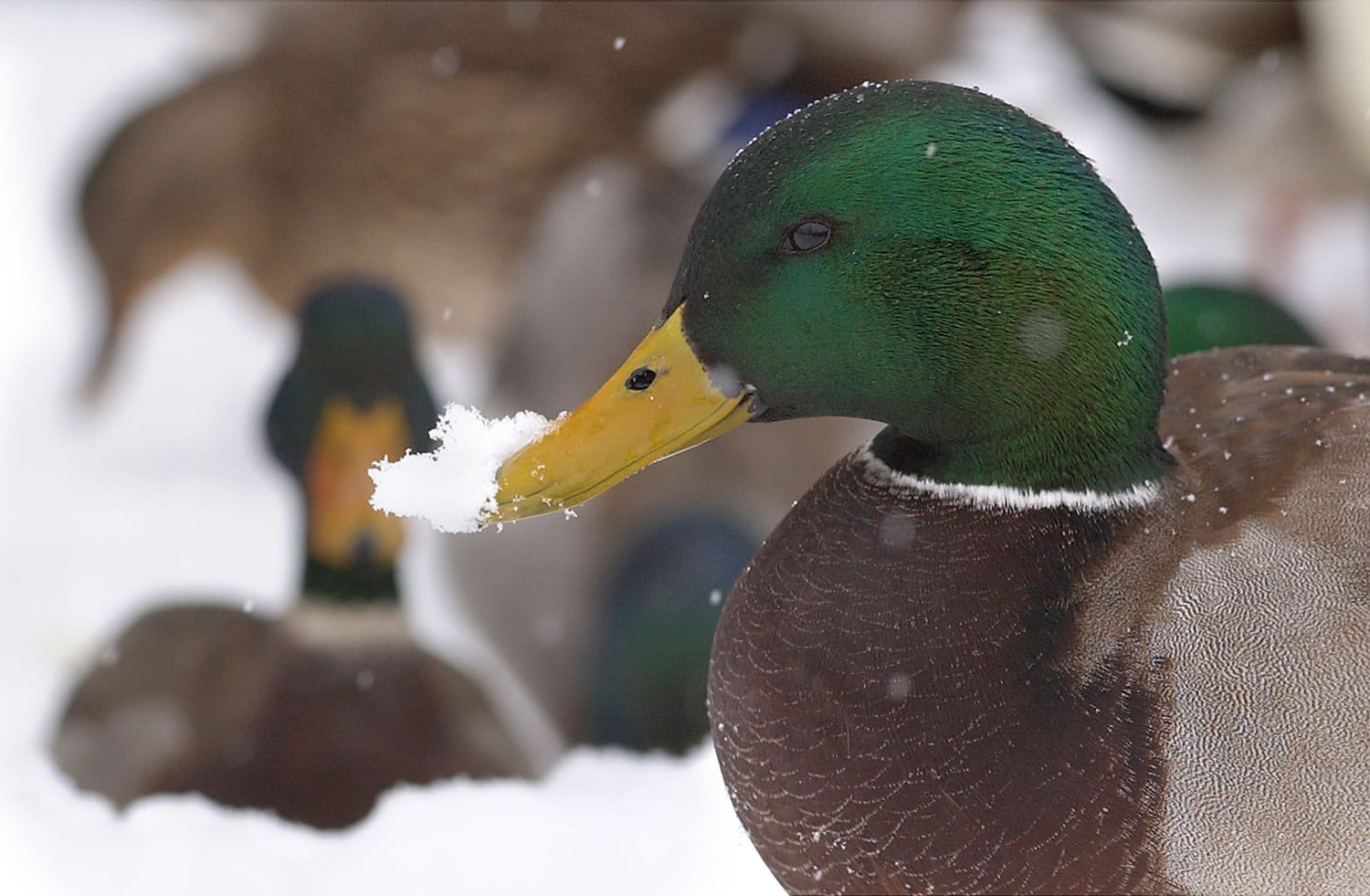Duck breast on rice is a popular winter meal in the home of many waterfowlers.
But “rice breast” is less appetizing.
Local hunter Jay Janecek said he got the creeps as he peeled back the skin to begin filleting the breast meat from a mallard he’d shot on the Pend Oreille River.
“The meat was full of wiggling parasites the size of small grains of rice,” he said.
“I come from a hunting family and go out a lot,” he said, noting that he’d bagged waterfowl for years before he came across this parasite.
“It’s nasty.”
The condition is called sarcocystosis, also known as rice breast. The parasite that causes the infection can be found in a variety of wild and domestic animals, but in North America it’s most commonly reported in waterfowl, especially dabbling ducks.
“We don’t have a good estimate of prevalence in Washington, but I would say it’s relatively uncommon here compared to some other areas of the Pacific Flyway, such as Great Salt Lake,” said Don Kraege, Washington Department of Fish and Wildlife waterfowl manager.
“I get a few calls a year and have taken a couple of ducks myself over the years that have had ‘sarco.’
No method of controlling the sarcocystis parasite has been found and scientists have little evidence the health of the bird is affected by the infection, he said.
Human health websites indicate sarcocystosis presents little health hazard to humans as long as the parasite is destroyed by cooking to 160 degrees.
Most hunters wouldn’t risk feeding parasitized meat to their families, but cooking meat well is a good idea since parasites can be in an animal’s muscle before they’re apparent to the human eye.
“I have seen it only twice,” said ardent waterfowler Kent Contreras, who regularly hunts the Pend Oreille River and other waters. “The parasites can be cooked out but most folks are so disgusted they just throw the bird away.”
Wasting game meat is a violation according to the “letter of the law” in Washington hunting regulations.
But Kraege said he hasn’t heard of a hunter being cited for discarding an infected bird.
Health officials warn that infected fowl should be disposed out of reach of scavenging pets or wildlife.



